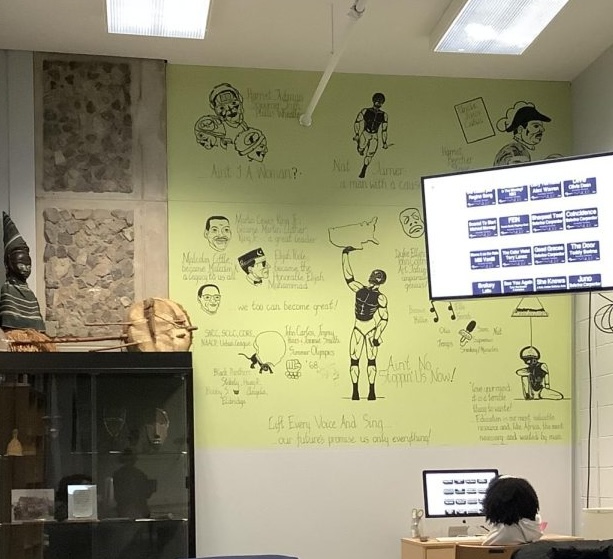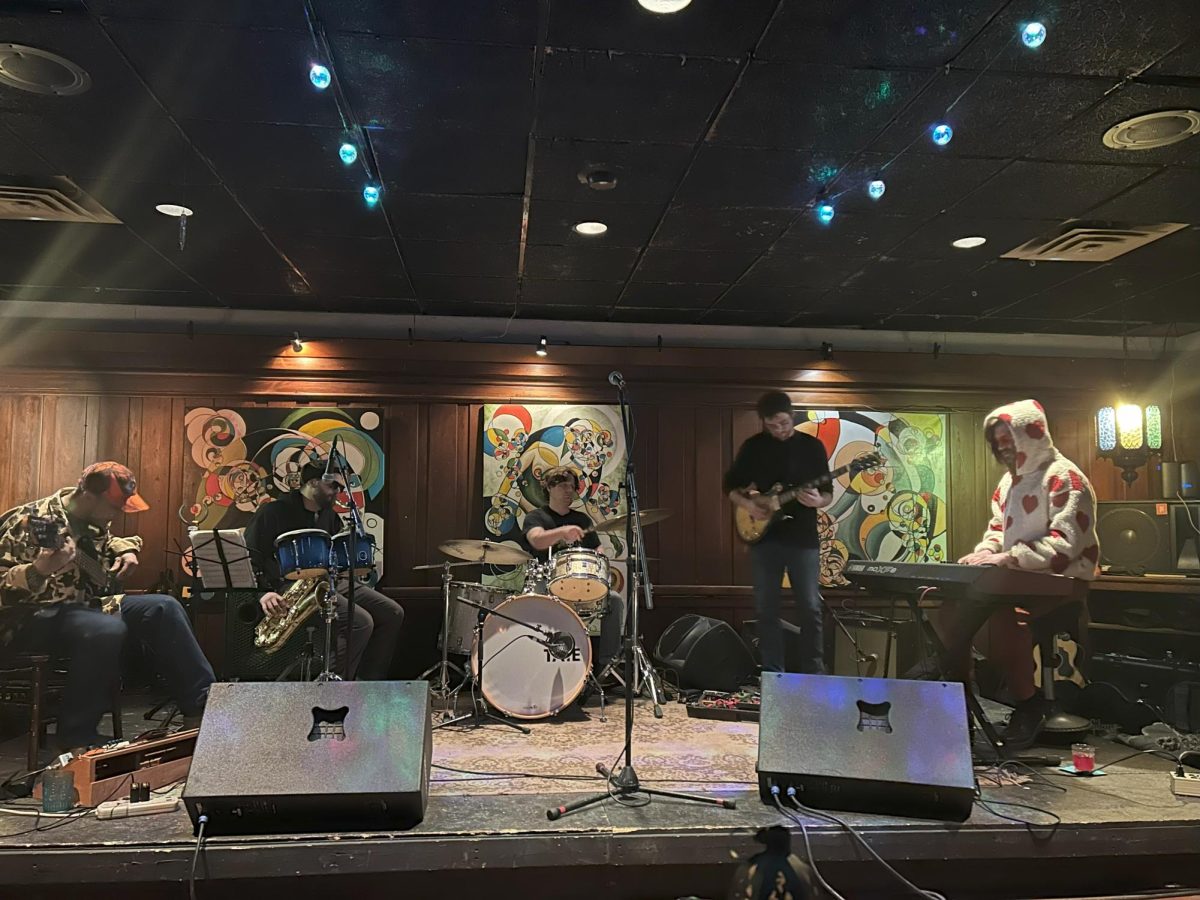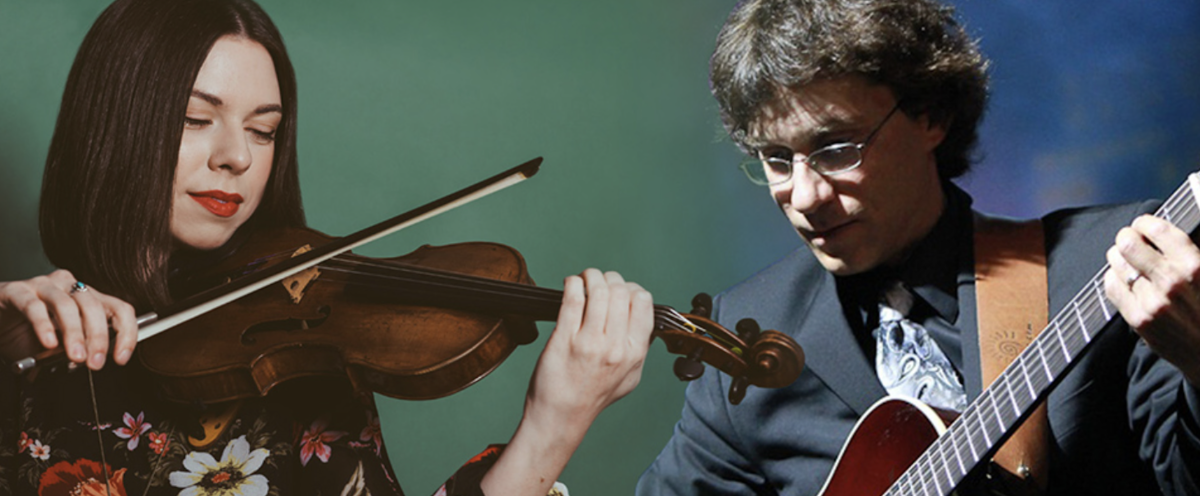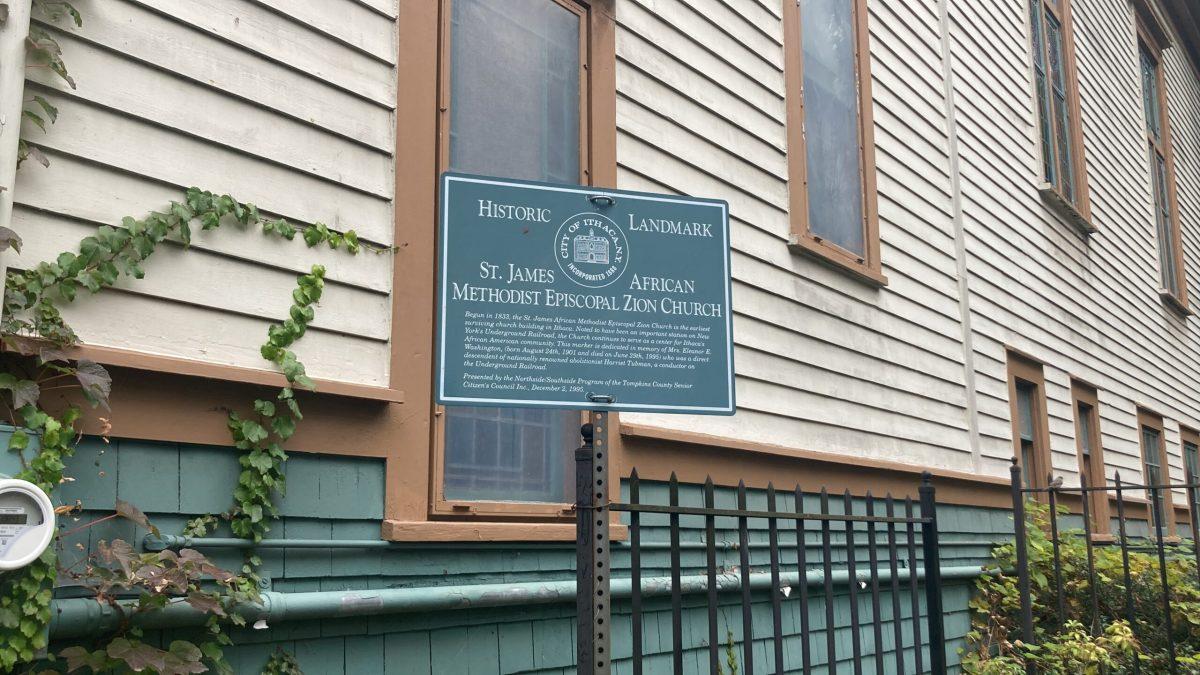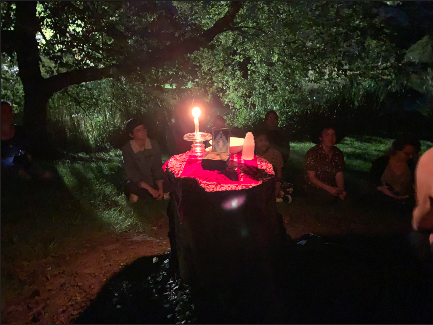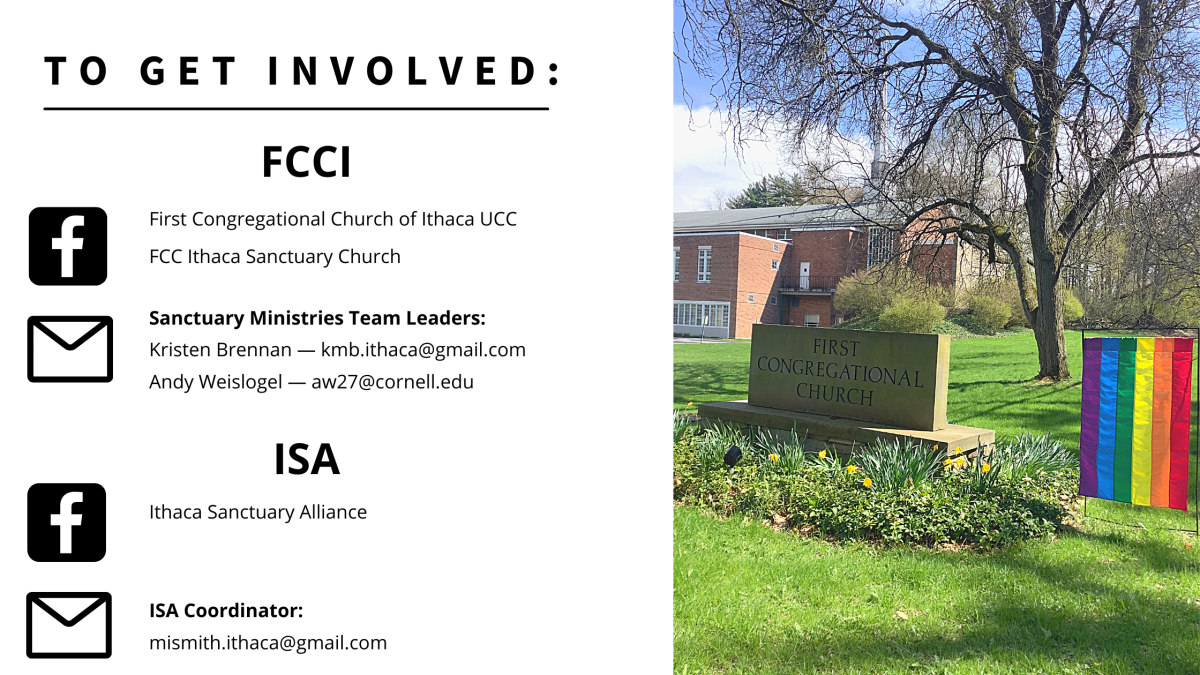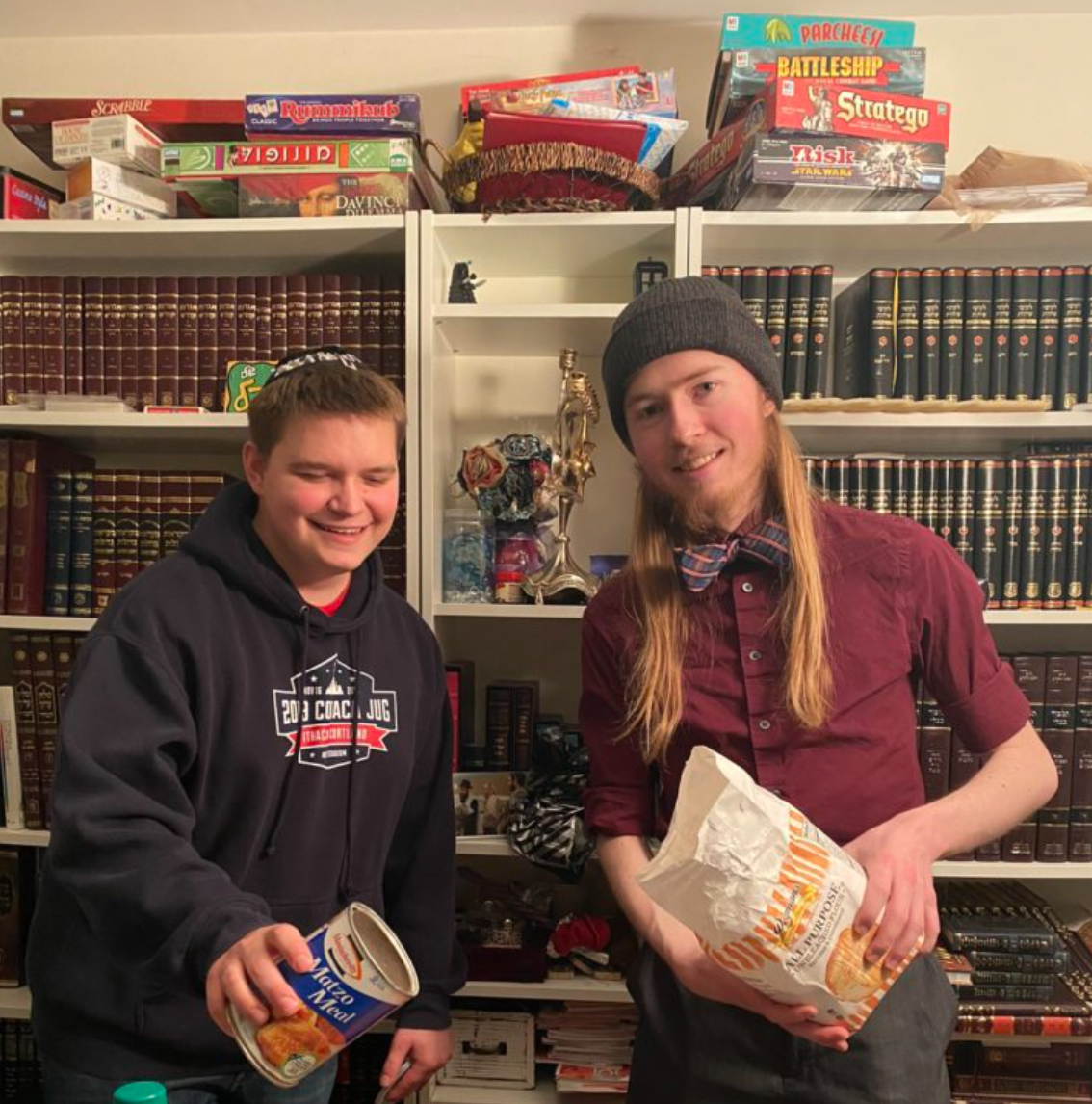Growing up Cookie Segelstein, a musical prodigy, always resented the Klezmer genre.
Her earliest memories include playing the somber tunes at the request of her father to her parents and their friends, all of whom had survived the Holocaust, which made them visibly upset.
“They were not immediately drawn to songs from what they would call ‘back home’ because it was too painful for them,” she said. “It was kind of like I was forced to play with them. I was for them. It was obviously painful.”

“When I would play a Yiddish song they would nod along and cry,” she said. “I think there’s a lot of painful memories for them… And for me, as a kid, I didn’t understand that. I didn’t know why they were crying or why they even wanted me to play if they were going to cry like that. That’s why I just hated it. I wish I wasn’t able to do this.”
Because of this, Segelstein spent most of her youth playing classical music. It was not until she had children in the late 1980s and early 1990s that she said she became curious about her Jewish roots, which includes Klezmer music.
“You never know when it’s going to be important to you,” she said. “It was surprising that once I had kids suddenly it started to matter like ‘oh my god, I’m gonna send them to Hebrew school.’”
In the wake of her father’s death in 2000, Segelstein formed a Klezmer band called Veretski Pass, named after the area Eastern Europe where her father was born, to honor the history of her family and the Jewish people. The band was invited to perform at Ithaca College Nov. 15, in Textor 101 sponsored by the college’s Jewish Studies Program at an event titled “The Making of Poyln: A Gilgul (Poland: A Metamorphosis).”

The band consists of Segelstein, the violinist; Stuart Brotman, the bassist; and Joshua Horowitz, the pianist, who also is Segelstein’s husband. Additionally, Joel Rubin, a clarinetist, has been accompanying the band on its last two projects. Rubin also performed with the band at the college.
History of the Klezmer genre
Klezmer is an Ashkenazi Jewish music genre that originated in the Middle Ages. The genre is heavily influenced by Hungarian, Romanian, Ukrainian and Ottoman sounds.
The genre is strictly instrumental with no lyrical or singing components. It relies on instruments including the violin, viola, tsimbl, basy, accordion, piano, tillinca, barban and poik.
Along with much of Yiddish and Ashkenazi culture, it was nearly wipped out and temporarily stifled during the World War II era in which six million Jews were murdered by the Nazi’s. As a result of the genocide, the genre was triggering to many who survived, including Segelstein’s parents, which trickled down to generations of their families. Additionally, many Ashkenazi Jews who emigrated before World War II disassociated with Ashkenazi culture to assimilate.
As a result, Klezmer was virtually non-existent in the United States until around the 1970s when generations after the Holocaust became interested in discovering the folk roots of their culture, according to My Jewish Learning.

History of Klezmer in Ithaca
The IC Klezmer Ensemble, which was established in 1999, was the first of its kind in the town of Ithaca, Peter Rothbart, professor in the Department of Music at IC, said.
Now, Cornell University and other schools in the area also have Klezmer ensembles.
“It’s sort of institutionalized in the Ithaca area now,” he said. “[IC] has been very open about accepting it as an ethno-music … Everybody just said ‘this is good music, let’s play it.’”
Despite growing up in a Jewish household in New York, Rothbart said he was only somewhat familiar with the genre growing up.
“Basically, the Nazi’s did a pretty good job of wiping out Ashkenazi culture in Europe,” he said. “When Israel was formed and people were recovering, people wanted nothing to do with the ‘old world’ and the ‘old culture.’”
“Certainly, [for] my generation, we did not grow up playing Klezmer,” he said. “Our group sang Israeli songs and Israeli dance, we didn’t learn Hasidic or any ‘old world’ stuff because there was no ‘old world’ left. Nobody wanted anything to do with it.”
Similarly, Peter Silberman, associate professor in the Department of Music at IC, said he was not exposed to Klezmer much as a child.
“My great-grandparents emigrated here and my great-grandparents said ‘oh, we are American now, we are going to speak English, we’re not going to do this and we’re not going to do that,’” he said.
“So, growing up, I never really heard music like that, because the people who came here wanted to escape all that stuff.”
Additionally, he said that growing up he resented the genre for being too stereotypical. But, as he got older, he said he became interested in and felt more connected to it.

“As I got older and started playing a little bit of it, I realized how rich the repertoire is and it’s something that’s ours and I don’t feel that way about a lot of other types of music,” he said. “It’s something that speaks directly to Jewish people. It sounds like Jewish music.”
He said the Klezmer revival is healing for him, and by extension other Ashkenazi Jews, in reconnecting with their destroyed cultural roots.
“My generation is thinking ‘oh, where do we come from?’” he said. “When we go back and circle around to find those origins, that we didn’t get told by our family, this is a little bit of a part of it.”
Segelstein echoed this sentiment saying that she continues to play Klezmer in honor of her late father who passed in 2000, two years before the band formed, and of the painful Jewish history that was lost in World War II.
“When you understand the traditions that were in place before the tragedy of the Holocaust, then you understand what was lost, and that’s really overwhelmingly sad and tragic,” she said. “This isn’t just happy, jumpy, dance-y music. It has a history. It has a sad history of lost, almost lost.”
“There’s always a little bit of recognition of the tragedy of the history of the Jewish people,” she said.


